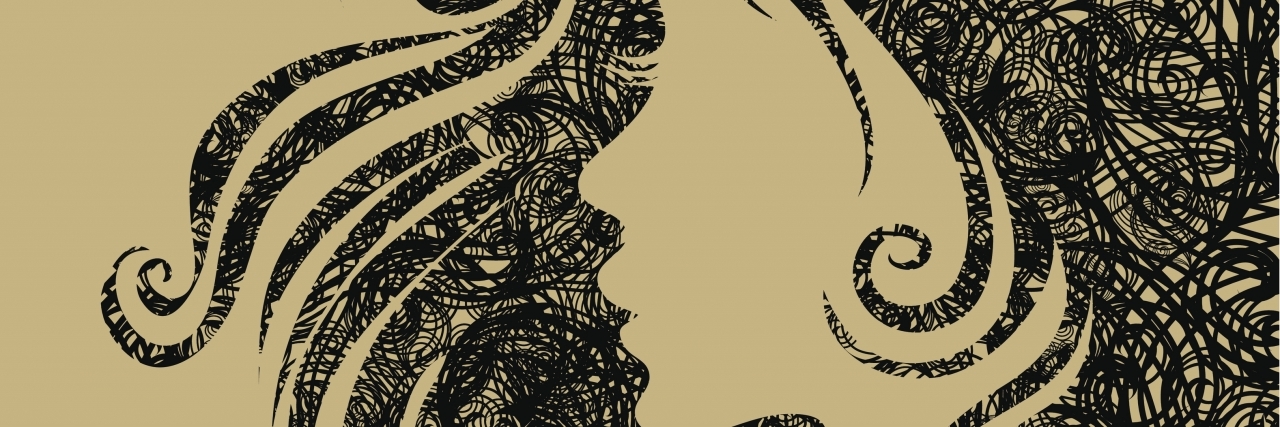Many parts of my bipolar disorder are apparent to my friends and family because they show externally. My mood swings are obvious and my triggers are easy to spot, but there are heavier parts about living with bipolar disorder that are invisible, even to those closest to me.
1. I hate myself most of the time.
The woman I am when I’m stable is the woman I love the most. When I’m depressed or hypomanic (which is most of the time), I turn into someone I hate. This means I have little respect for myself, disregard my needs and have no self-compassion most of the time. No one sees this because I don’t talk about it and pretend to love myself, no matter how I really feel.
2. I don’t want to push anyone away.
Sometimes I’m mean or cold to those closest to me. I don’t intend to be this way, but it’s hard to control my negative emotions. I don’t want to push people away, but my actions do so anyway and this makes it hard to pull those people back.
3. At times, everything seems daunting.
During a depressive episode, I’m more than depressed. I’m anxious and easily overwhelmed by life and everyday tasks. Even little things like cleaning the litter box or getting dressed seem like too much, so I avoid them during a depressive episode.
4. It’s hard to love.
I feel a lot of emotions, sometimes all at once. Anger, bliss, disgust and happiness can all affect my mood at the same time, and that leaves little room to love. I’m so focused on the negatives of my life with bipolar disorder that it’s difficult to love others – and myself. It’s easier to let negativity consume me than to work on loving myself and others. Easier, but damaging.
5. The side effects of my medication really bother me.
If I want to try and maintain stability, I have to take my medication every day. But the side effects of tremors, excessive sweating and restless limbs are unbearable when I sleep. They are hard to deal with and still bother me immensely, even after having them for so long.
6. Needing help continuously hurts my pride.
Therapy, medication, mood tracking – it all helps me stay stable. But it also feels like each of those things strips me of my independence and my pride. I’d like to manage my bipolar disorder on my own, to prove my strength, but I can’t. I need help, and even though I know that’s OK, it still hurts my pride.
7. My mood swings are painful.
My mood swings are obvious because everything about me changes. Apart from my mood, my speech, appearance, appetite and priorities all change. What others can’t see is how much those changes hurt me. Both coming down from hypomania and falling into a depressed state feel like I’m plummeting down ten stories onto concrete. I can feel physically sore and sick during a mood swing, but letting on about it would worry those around me, so I keep the pain to myself.
8. Hypomania isn’t fun.
Some people close to me have noted that when I’m hypomanic, I’m more energetic, more motivated and more fun. All of that is true, but what they don’t know is when I experience hypomania, I feel completely powerless and out of control as to what I say and do. Sure, it’s nice to have more energy and be more fun, but hypomania is not fun because I don’t get to choose.
9. I worry about how I treat others.
My near-constant irritability makes me anxious about what I say and how I treat others. I don’t want to be irritable, but my bipolar disorder makes me that way. I don’t want to treat others poorly, but I feel like I can’t control my words or actions when bipolar disorder makes me irritable. I worry because I don’t ever want to hurt anyone, but I know that unintentionally, I will anyway.
10. I worry about how I treat myself.
During a depressive episode, I neglect myself and my basic needs. During a hypomanic episode, I become careless with my body and lose respect for myself. I worry about how I treat myself when I’m not stable. Most of the time I feel like I don’t care about myself, and that affects my level of self-care. I want to love myself and treat myself in the way I deserve, but most of the time I just don’t care.
Living with bipolar disorder isn’t easy. The symptoms, medication side effects and physical pain I feel all interrupt my daily routine and make my life generally unpleasant. Many aspects of my life with bipolar disorder are not only unpleasant, but invisible to those around me. Even though I’m in pain nearly all the time, my disorder is only partially visible and understood. I’m hoping that disclosing these ten things will make my life with bipolar disorder a little bit easier.

